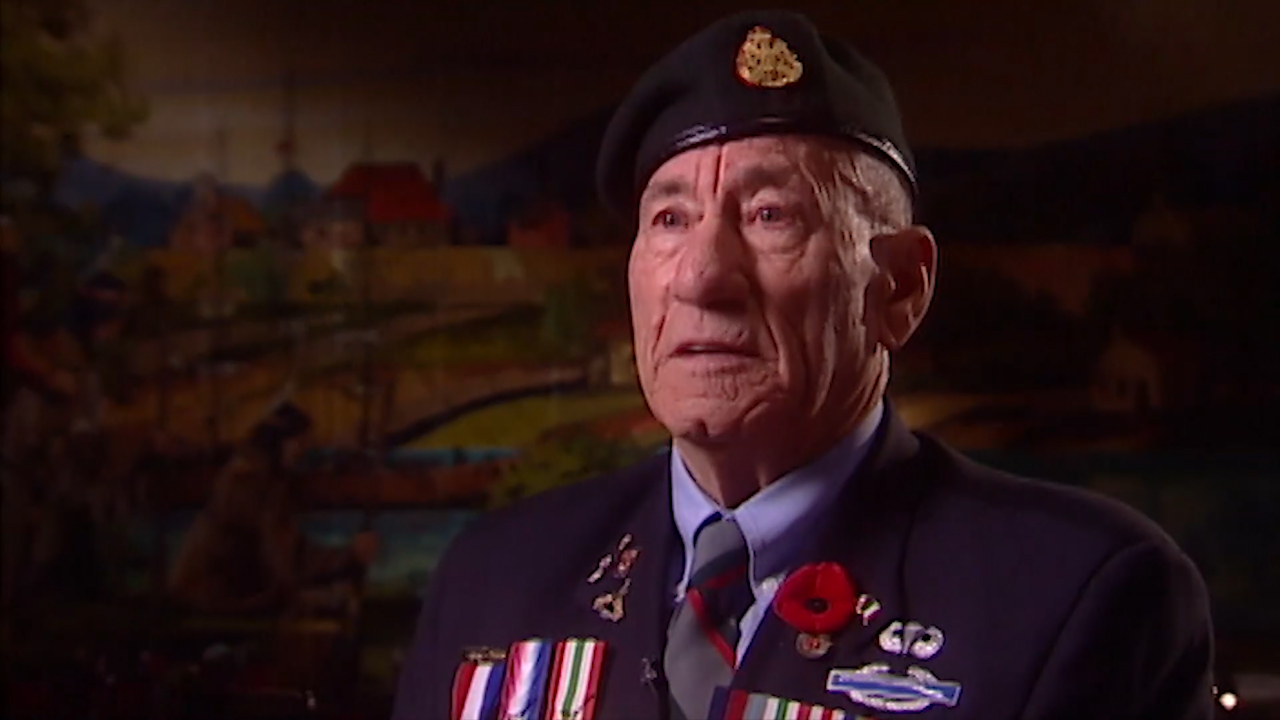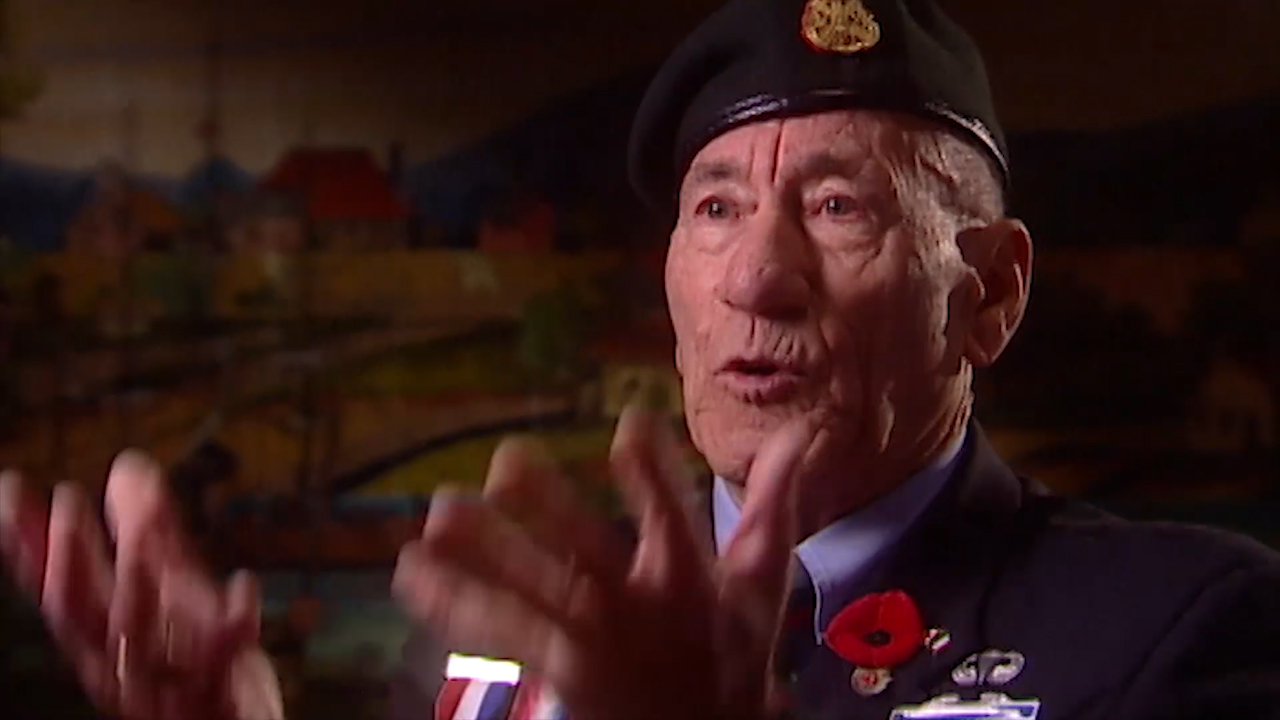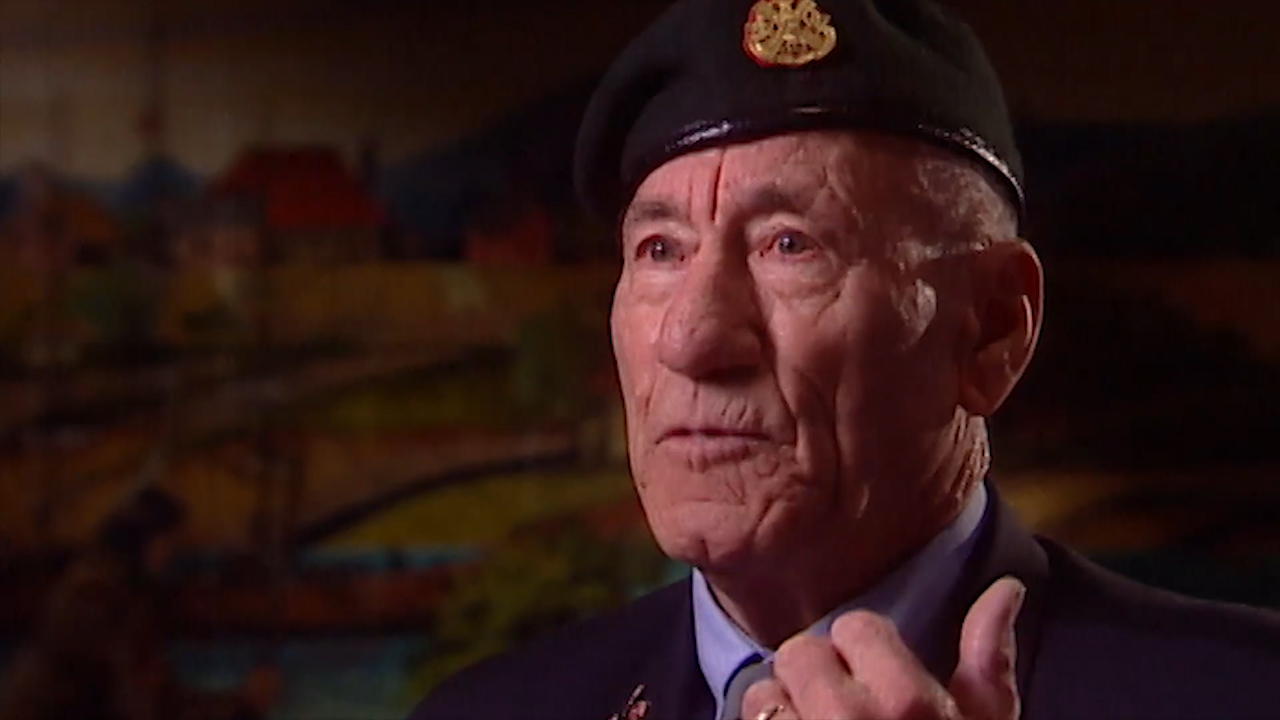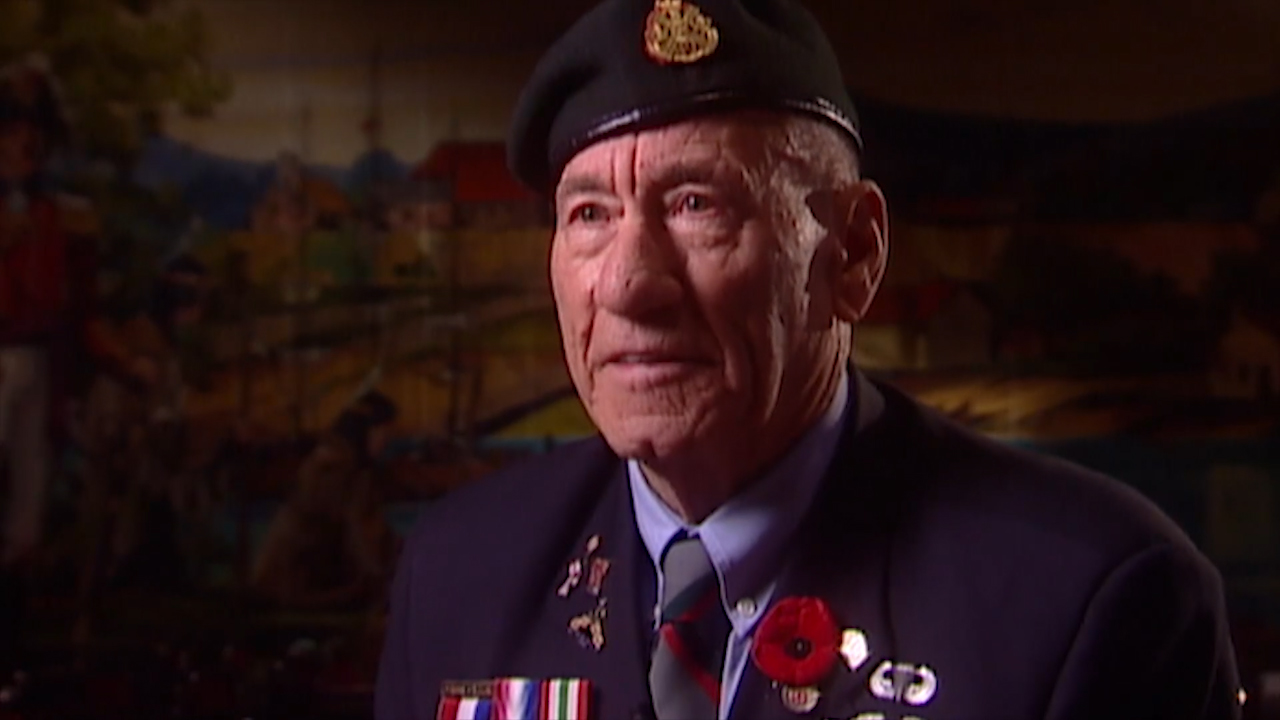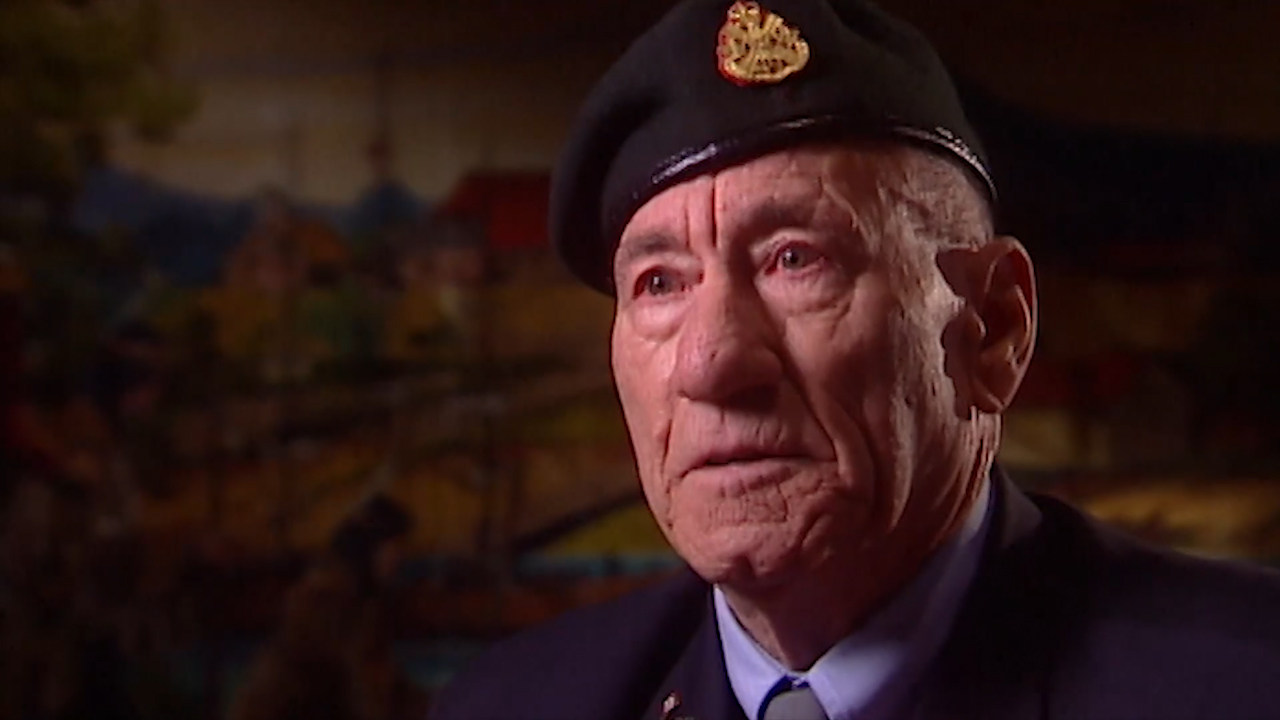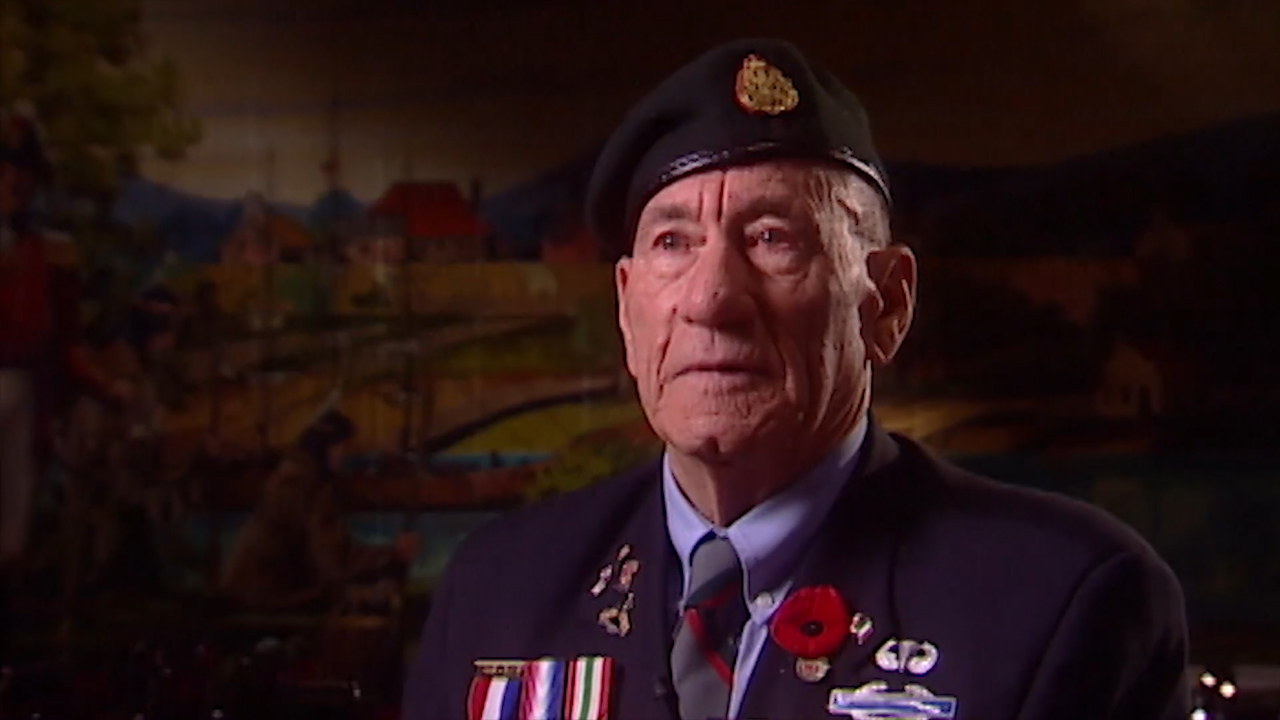Civilians Caught in the Middle of War
Heroes Remember
Civilians Caught in the Middle of War
Transcript
Description
Mr White recalls his unit finding a group of civilians holed up in Ortona, having been too scared to even step outside for two weeks. He then explains how important it is for youth to understand that war doesn’t only involve and affect soldiers.
Maurice White
Maurice White was born in Coldwater, Ontario, on January 2, 1925. At a young age, his family relocated to Grassland, Alberta, where he was raised. After being rejected as too young by the air force, he successfully enlisted with the army, joining the Prince of Wales Armoury in Edmonton, Alberta. By the age of 17 he was an instructor, carrying the rank of corporal, but anxious to serve overseas he left his rank, to serve as a Private with the Loyal Edmonton Regiment. For 23 months Mr White served in the Italian Campaign, seeing action in such cities and towns as Ortona, Sicily, and Ragoona. Although not a religious man, his numerous near death experiences left him believing someone may have been watching over him He served with the military police for a year after the end of the War before returning to Canada.
Meta Data
- Medium:
- Video
- Owner:
- Veterans Affairs Canada
- Duration:
- 02:55
- Person Interviewed:
- Maurice White
- War, Conflict or Mission:
- Second World War
- Location/Theatre:
- Italy
- Branch:
- Army
- Units/Ship:
- 1st Special Service Force
- Rank:
- Corporal
Related Videos
- Date modified:



